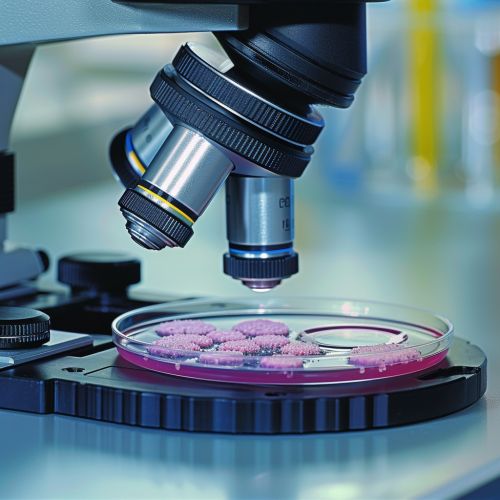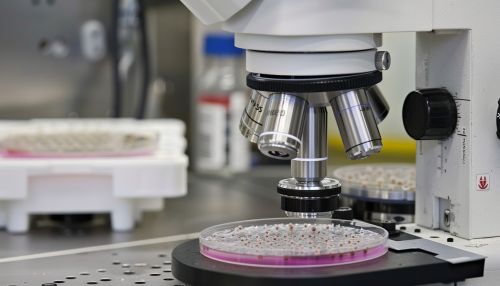Microbial genomics
Introduction
Microbial genomics is a scientific discipline that involves the study of the genomes of microorganisms. It encompasses the sequencing, analysis, and comparison of microbial genomes, which can provide insights into the biology, evolution, and ecological roles of microorganisms. This field has revolutionized our understanding of microbial diversity and has significant implications for medicine, agriculture, and environmental science.
History
The history of microbial genomics can be traced back to the late 20th century, with the advent of DNA sequencing technologies. The first complete bacterial genome, that of Haemophilus influenzae, was sequenced in 1995. This milestone marked the beginning of a new era in microbiology, as it became possible to study microorganisms at the genomic level.


Genome Sequencing
Genome sequencing is a central aspect of microbial genomics. It involves determining the complete DNA sequence of an organism's genome. Several techniques are used in microbial genome sequencing, including Sanger sequencing, next-generation sequencing, and third-generation sequencing. These technologies have greatly increased the speed and reduced the cost of genome sequencing, making it feasible to sequence the genomes of many microorganisms.
Genome Analysis
Once a microbial genome has been sequenced, it can be analyzed to gain insights into the organism's biology. This process, known as genome analysis, involves several steps. First, the raw sequence data is assembled into a complete genome sequence. Then, the genes within the genome are identified and annotated, which involves predicting their function based on their sequence. Comparative genomics, which involves comparing the genomes of different organisms, can also be used to identify genes that are conserved across species or unique to a particular species.
Applications
Microbial genomics has a wide range of applications. In medicine, it can be used to identify the cause of infectious diseases and to develop new treatments and vaccines. In agriculture, microbial genomics can be used to study the role of microorganisms in soil health and crop productivity. In environmental science, it can be used to study microbial communities and their roles in ecosystems.
Challenges and Future Directions
Despite the many advances in microbial genomics, there are still many challenges to overcome. One major challenge is the complexity of microbial communities, which can contain hundreds or even thousands of different species. Another challenge is the vast amount of data generated by genome sequencing, which requires sophisticated computational tools to analyze. Looking to the future, advances in sequencing technology and computational biology are expected to continue to drive progress in microbial genomics.
